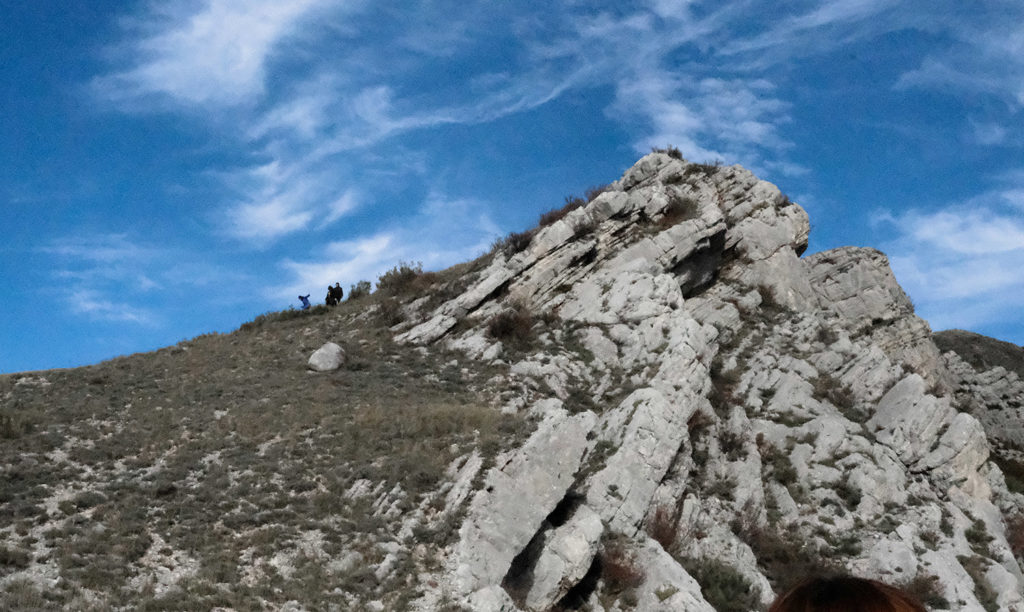La survie à tout prix

Si la transformation des conditions d’existence sur la Terre est souvent envisagée sous l’angle d’une nécessaire et souhaitable survie de l’espèce humaine, c’est en développant une solidarité entre tous les étants. Selon certains il faudrait retrouver l’inclusion dont nous faisons partie et nous réintégrer au tout, au monde et au cosmos. C’est parce que nous nous sommes séparés du monde que nous maltraitons les composantes de celui-ci jusqu’à mettre en danger nos propres conditions de survie.
Or l’angle mort de cette stratégie, qui semble aller de soi, consiste dans le fait que la volonté de survie suppose que l’extinction de notre espèce serait un accident et pour tout dire une catastrophe, de sorte qu’on imagine que l’espèce humaine doit survivre indéfiniment. Cette éternité de l’espèce est une exceptionnalité dont le fondement est ancré dans la théologie et c’est sans doute la raison pour laquelle de nombreux raisonnements sur l’anthropocène ont un fondement théologique sans toujours l’affirmer.
Cet exceptionnalisme, selon lequel l’espèce humaine doit être éternelle parce qu’elle a un rapport privilégié avec l’origine considérée comme une création (que celle-ci soit une cause divine ou la capacité réflexive prenant en charge la totalité comme totalité), a les mêmes fondements que ce que celui-ci souhaite combattre, c’est-à-dire l’exceptionnalisme qui sépare l’espèce humaine du reste du monde et qui lui permet de l’exploiter.
Remettre en cause la structure même de l’exceptionnalisme c’est non seulement remettre en cause l’anthropocentrisme, puis le biocentrisme, puis le vitacentrisme. Car le vivant n’est sans doute qu’un cas très rare de la matière. C’est pourquoi un nihilisme de l’impersonnalité matérielle semble nécessaire à la déconstruction de l’exceptionnalisme de l’espèce humaine, seul à même de le replacer non pas au centre du monde, mais en sa périphérie.

If the transformation of the conditions of existence on Earth is often envisaged under the angle of a necessary and desirable survival of the human species, it is by developing a solidarity between all beings. According to some, we should find the inclusion of which we are part and reintegrate ourselves into the whole, the world and the cosmos. It is because we have separated ourselves from the world that we mistreat its components to the point of endangering our own conditions of survival.
The blind spot of this strategy, which seems to be self-evident, consists in the fact that the will to survive assumes that the extinction of our species would be an accident and, in fact, a catastrophe, so that we imagine that the human species must survive indefinitely. This eternity of the species is an exceptionalism whose foundation is rooted in theology, and this is undoubtedly the reason why many arguments about the Anthropocene have a theological foundation without always affirming it.
This exceptionalism, according to which the human species must be eternal because it has a privileged relationship with the origin considered as a creation (whether this is a divine cause or the reflexive capacity to take charge of the totality as a totality), has the same foundations as what this one wishes to combat, i.e. the exceptionalism that separates the human species from the rest of the world and allows it to exploit it.
To question the very structure of exceptionalism is not only to question anthropocentrism, then biocentrism, then vitacentrism. For the living is undoubtedly only a very rare case of matter. This is why a nihilism of material impersonality seems necessary to the deconstruction of the exceptionalism of the human species, the only way to put it back not at the center of the world, but at its periphery.
